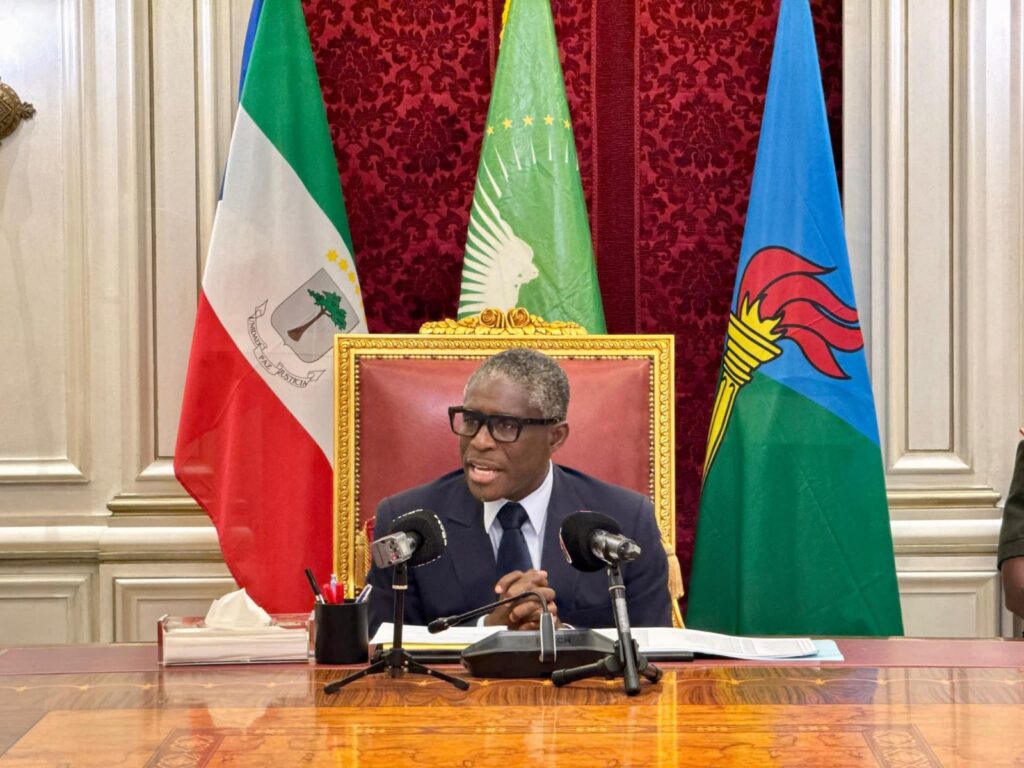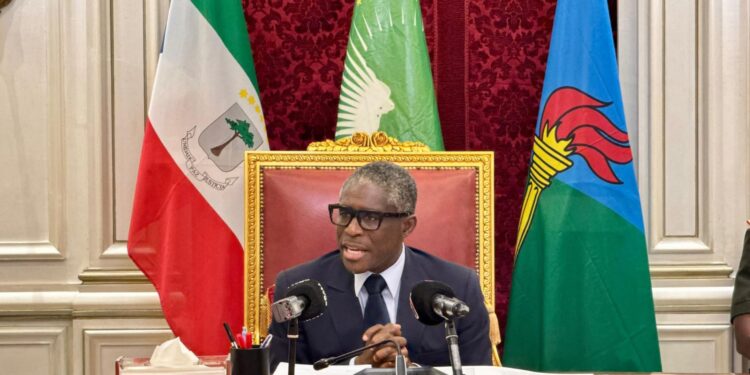Equatorial Guinea’s Vice President, Teodoro Nguema Obiang Mangue, has advised citizens to avoid travelling to the United States following a travel ban imposed by U.S. President Donald Trump.
“I recommend to my compatriots to stop going to the United States until the country reconsiders its decision,” Mangue said on Tuesday, despite insisting that Equatorial Guinea maintains “excellent relations” with Washington and still considers the U.S. its “main economic partner and investor.”

The travel ban, which came into effect on Monday, includes 11 other countries and is part of Trump’s broader push to restrict immigration. Although Equatorial Guinea is among the nations affected, Mangue said the impact would be minimal, noting that fewer than 50 Equatorial Guineans travel to the U.S. annually.
Equatorial Guinea had been in talks with the U.S. about accepting third-country migrants as part of Trump’s controversial immigration overhaul aimed at deporting large numbers of undocumented individuals.
For many young Equatoguineans, the ban comes as a disappointment. Deogracias Ndong, a first-year medical student at the University of Equatorial Guinea, criticized the decision.

“I have thought about going to study in the United States. They’ve got good training over there. For me it’s a discriminatory and racist decision by Donald Trump,” he told AFP.
Several African countries have reacted with dismay over their inclusion in the travel ban. Chad, for example, retaliated with a suspension of U.S. visas for American citizens and has since begun “constructive dialogue” to resolve the issue, according to its foreign ministry.

The U.S. Embassy in Malabo justified the move, stating that 70% of Equatorial Guinean students and 22% of tourists overstayed their visas.
Once largely unaffected by the migration pressures seen across Africa, oil-rich Equatorial Guinea is now grappling with economic hardship. The country fell into recession in 2023 following a drop in oil prices, and unemployment has climbed to 8.5%, according to the African Development Bank.
A recent survey by the Johannesburg-based Ichikowitz Family Foundation found that nearly 60% of young Africans are considering emigration within the next three years, primarily in search of employment—naming the United States as their preferred destination.









